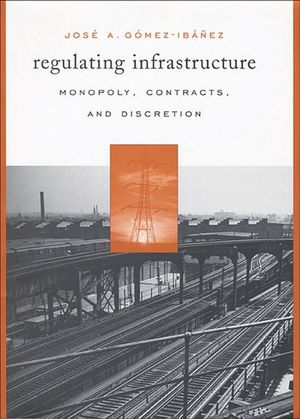Regulating Infrastructure
Published by Harvard University Press
This wide-ranging study of urban infrastructure “offers a series of fascinating arguments” in favor of market-oriented approaches to regulation (Times Higher Education Supplement).
In the 1980s and ‘90s, many countries turned to the private sector to provide infrastructure and utilities—such as gas, telephones, and highways—with the idea that market-based incentives would control costs and improve the quality of essential services. But high-profile failures have since raised troubling questions about privatization. This book addresses one of the most vexing of these: how can government fairly and effectively regulate “natural monopolies”—those infrastructure and utility services whose technologies make competition impractical?
Mapping out various approaches to regulation, José Gómez-Ibáñez draws on a wealth of case studies, as well as history, politics, and economics. He makes a strong case for favoring market-oriented and contractual approaches over those that grant more discretion to government regulators. He shows how contracts can provide stronger protection for infrastructure customers and suppliers—and greater opportunities to tailor services to their mutual advantage. At the same time, he highlights scenarios where alternative schemes may be needed.
BUY NOW FROM
COMMUNITY REVIEWS

